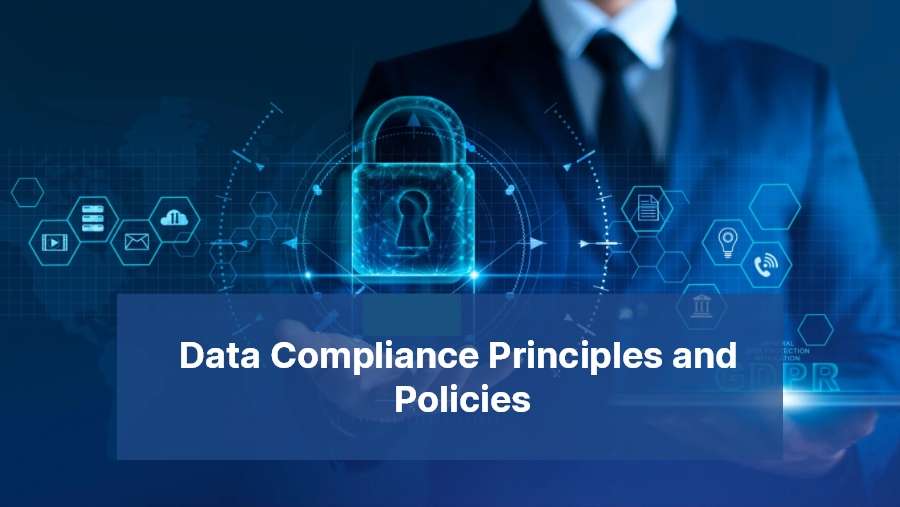
Data compliance is a set of principles and policies that guide organizations on how to handle information safely, securely, and ethically. With new data protection regulations such as the General Data Protection Regulation (GDPR) and the California Consumer Privacy Act (CCPA), understanding data compliance is becoming increasingly important for businesses of all sizes.
What is GDPR?
The General Data Protection Regulation (GDPR) is a comprehensive EU legislation designed to give individuals more control over their personal data. It sets out various requirements for how companies must process and store the personal data of EU citizens, including obtaining consent for processing personal data, notifying individuals when their rights have been violated, and ensuring that data is securely stored. Additionally, GDPR requires companies to be transparent about data collection and to provide customers with clear information on their rights.
GDPR is a complex piece of legislation with vast implications for businesses operating within the EU. Companies that are not compliant with GDPR can face severe penalties, including hefty fines and reputational damage. It is therefore essential for companies to implement robust data compliance strategies to ensure that they are compliant with all relevant regulations. This involves comprehensive risk assessments, audits of data processes, and ongoing monitoring of changes in both the law and technology.
What are the CCPA’s Requirements?
The California Consumer Privacy Act (CCPA) is a comprehensive privacy law that gives Californians more control over their personal data. It sets out various requirements for how companies must process and store the personal data of Californians, including providing a clear overview of information collected at the point of sale, displaying an opt-out option on their websites, and disclosing information on how customer data is used. Additionally, companies must make sure that customer data is securely stored in accordance with CCPA guidelines.
For example, companies must follow reasonable security protocols when handling customer data, provide reasonable access to customers regarding their data records, and give them the option to delete any or all of their personal data stored. If a company fails to comply with CCPA’s requirements, it may be subject to civil penalties of up to $7,500 per violation. Furthermore, companies must make sure that all vendors that have access to customer data must also comply with the CCPA. Therefore, it is important for companies to monitor and review their vendor agreements regularly to stay compliant with the regulations set out by the CCPA.
Security Protocol Compliance
Downtown Managed Services is certified to provide personal and business data protection services according to data security protocols. Our IT consultants are ready to provide you with detailed information about security compliance!
How to Protect Sensitive Data with Encryption
Encryption is one of the most critical components of data security, and a critical factor in ensuring compliance with data privacy regulations like GDPR and CCPA. When data is encrypted, it gets scrambled into an unreadable form that can only be unscrambled with a unique key or password. This makes encryption one of the most effective ways of protecting sensitive data from being accessed by unauthorized third parties. To ensure full compliance, companies should develop robust and secure encryption practices to protect customer information from misuse or unauthorized access.
Best Practices for User Privacy Compliance
Companies have a responsibility to protect their customers’ privacy and ensure that any use of their personal data is consistent with applicable laws. The best way to ensure this is to implement robust user privacy policies, processes, and procedures. To do this effectively, it’s important to be aware of the different types of data that your company collects and processes, and the different laws related to user privacy in different regions. It is also important to have processes in place for handling user requests for their data, deleting or updating information on request, and responding quickly and efficiently to incidents involving data breaches or unauthorized access attempts.
An effective user privacy compliance program should include the development of a detailed, up-to-date written policy outlining all relevant laws and requirements; regular training sessions to update employees on user privacy laws and best practice procedures; internal processes related to employee handling of user data; and ongoing monitoring to ensure all processes are compliant. Additionally, companies should have a plan in place for responding quickly and efficiently in the event of any data breaches or incidents involving unauthorized access attempts. Developing a comprehensive set of customer data protection policies is the best way to ensure that your company meets its legal obligations regarding user privacy compliance.
Data Breach Notification Policies
For organizations that process personal data, it’s important to have policies and procedures in place for the prompt notification of any data breaches. Under the GDPR, companies must report applicable data breaches to their supervisory authority within 72 hours of discovery. Companies should also notify affected customers when a breach occurs that involves their personal information. In addition, organizations should ensure they are taking appropriate steps to secure user data and prevent future breaches from occurring.
One safeguard companies should have in place is a data breach notification policy. This policy should detail the procedures for responding to a data privacy breach, as well as any steps an organization may take to facilitate an investigation or respond to regulatory requests. In addition, organizations should ensure that their employees are familiar with these policies and understand the security measures required for handling user data responsibly. By following a comprehensive approach to data compliance, organizations can protect user information from unauthorized access and protect themselves from costly penalties related to violations of the GDPR.
Security Protocol Compliance
Downtown Managed Services is certified to provide personal and business data protection services according to data security protocols.
